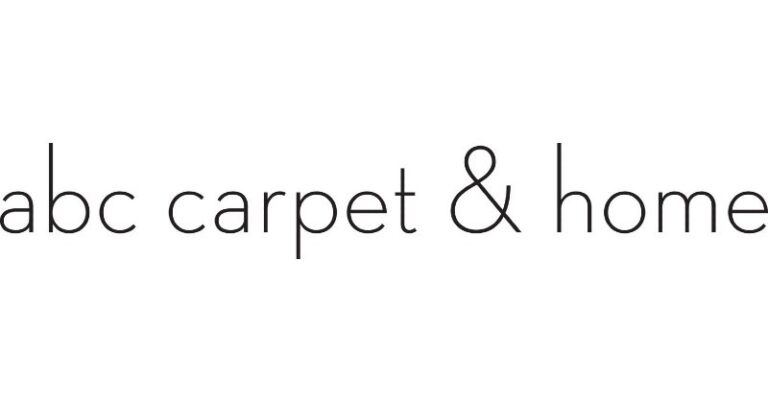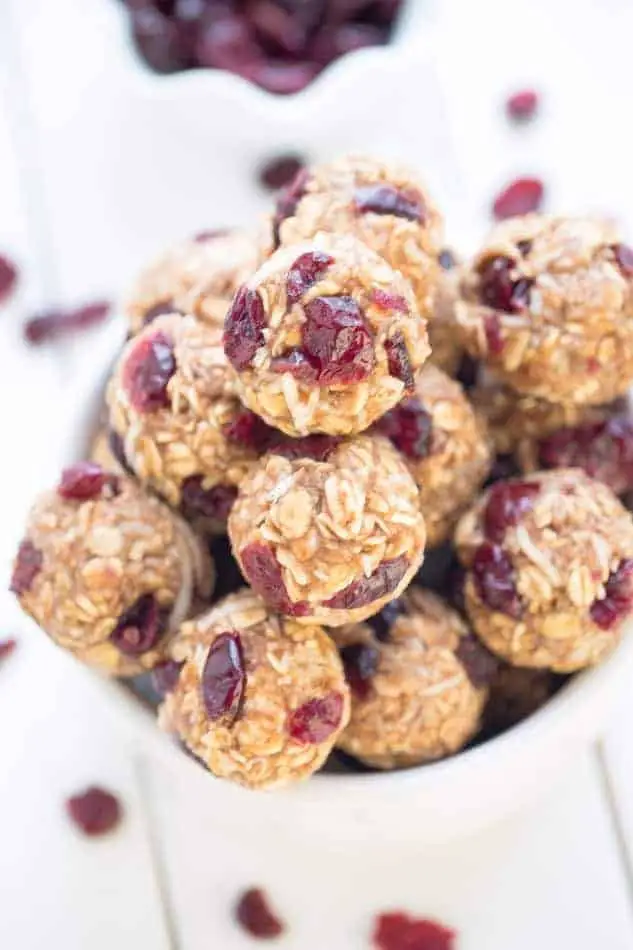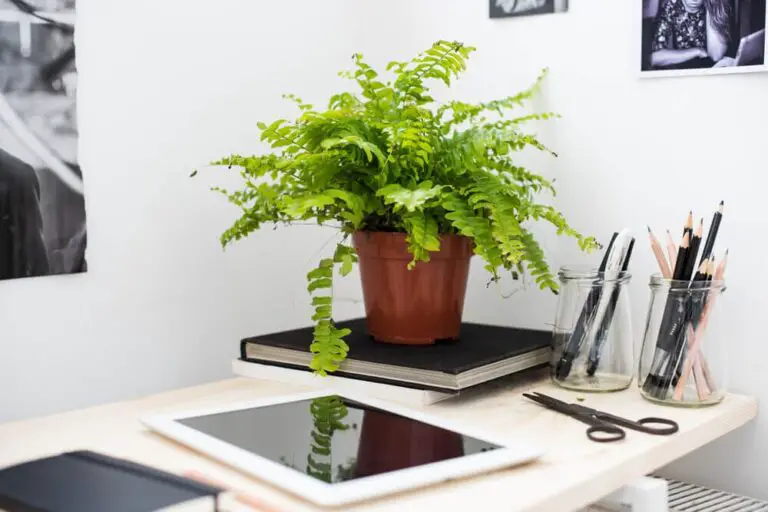Vinyl Plank Flooring Reviews: Best Brands, Installation, Costs, Pros & Cons
When it comes to updating your home, one of the most daunting tasks can be finding the perfect flooring solution. With so many options available in the market, it’s natural to feel overwhelmed and unsure which choice is best for your home. And let’s not forget about budget – will you have enough to cover the cost of the floor itself, as well as installation? But what if I told you that there’s a solution that combines affordability with durability?
Enter vinyl flooring, the latest trend taking the market by storm. Its unique characteristics make it an attractive option for many homeowners. However, before you jump on the bandwagon, it’s essential to understand both the benefits and drawbacks of vinyl flooring. In this article, we’ll delve into the world of vinyl plank flooring, exploring its pros and cons, installation costs, and more.
We’ll also provide you with a comprehensive guide on how to choose high-quality vinyl planks, including tips on installation direction, glue vs float, and even cleaning and repairing your new floor. Read on to discover everything you need to know about vinyl plank flooring before making the right decision for your home.
What is Vinyl Plank Flooring?
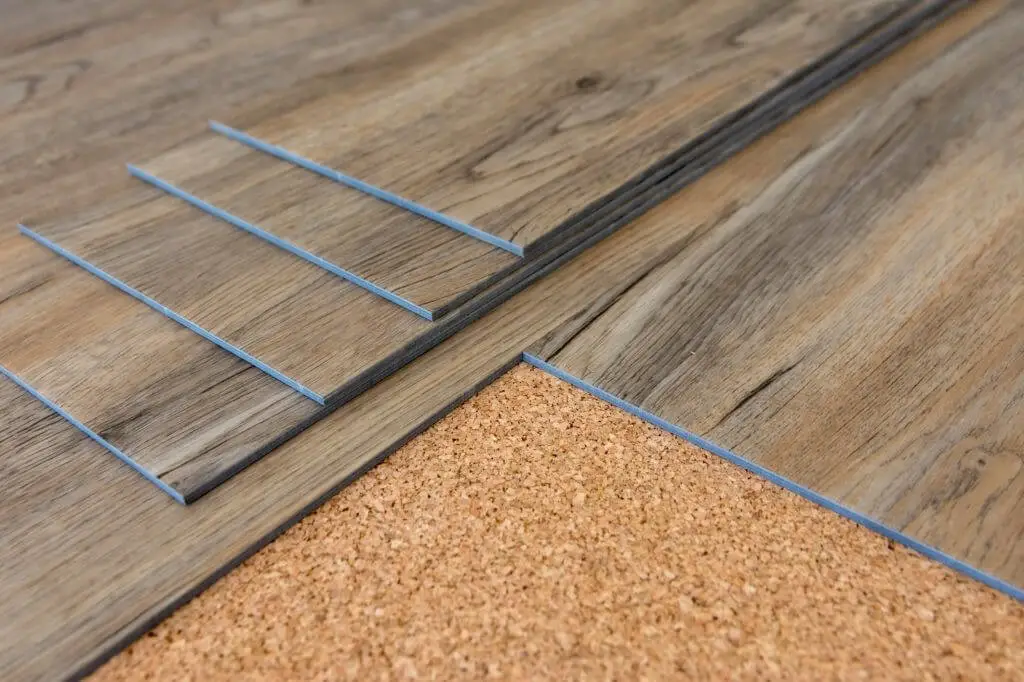
If traditional wood floors are out of reach for any reason, consider vinyl plank flooring as a fantastic alternative. Its unique designs can replicate the look of hardwood floors to perfection, but it boasts several advantages over other options. While they mimic the appearance of wood, these planks differ significantly in terms of cost, durability, and water-resistance.
The popularity of vinyl plank floors lies in their affordability and family-friendly nature.
Installation is remarkably easy, making it an attractive solution for those looking to renovate without breaking the bank. With a wide range of designs and styles available, you can find the perfect match for your home décor.
What sets vinyl plank flooring apart? It comes in strips designed to mimic various hardwood types. Whether you crave the look of oak or another wood style, you can incorporate it into your vinyl floor.
To achieve the desired result, simply shop around and discover a design that harmonizes with your home’s aesthetic and caters to the preferences of your entire family.
What Is a Luxury Vinyl Plank (LVP)?
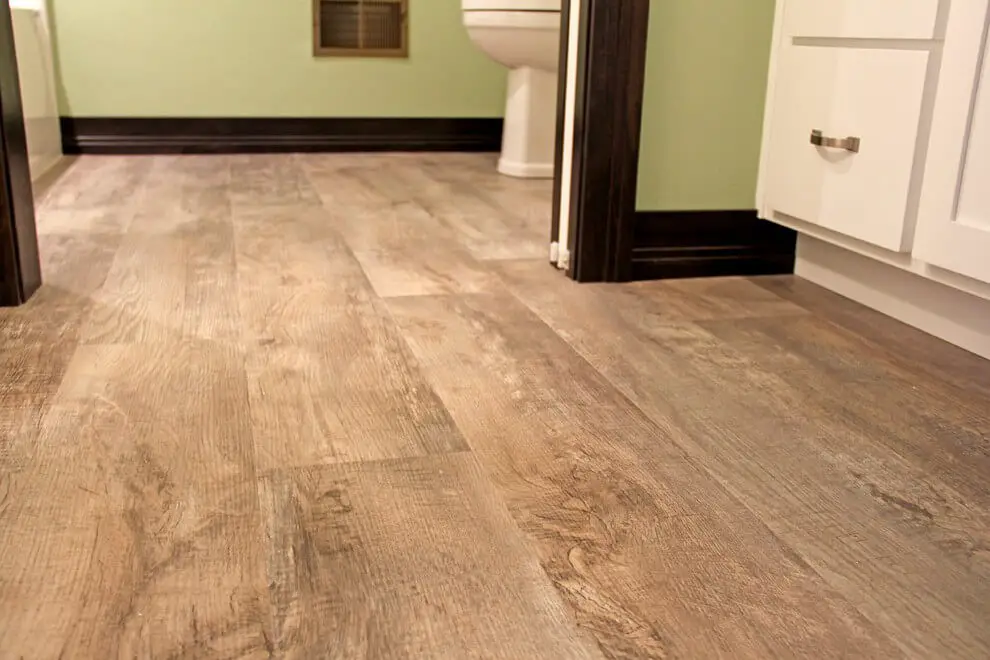
The vinyl plank industry has witnessed significant advancements since its inception, with manufacturers continually pushing the boundaries of design and technology. Today, it’s not uncommon to find luxury vinyl planks that are so convincing in their realism that they could easily be mistaken for genuine hardwood. These high-end options often boast impressive finishes that convincingly mimic the texture and appearance of real wood.
On the other hand, more affordable alternatives may offer water-resistance rather than full waterproofing, a distinction that’s crucial to consider when making a purchase. Unfortunately, this difference can sometimes lead to confusion on the part of consumers, with some unscrupulous sellers attempting to pass off cheaper options as more expensive, waterproof varieties.
Despite these potential pitfalls, luxury vinyl planks have earned a reputation for their exceptional look, durability, and ease of installation. Many homeowners appreciate the DIY-friendly nature of LVP, which allows them to save on installation costs while still enjoying a high-quality flooring solution that can withstand the rigors of family life, including the presence of kids and pets.
What Is Vinyl Plank Flooring Made of?
Vinyl planks are expertly engineered to mimic the appearance of hardwood, utilizing a combination of polyvinyl chloride resins (PVC) and synthetic materials. The manufacturing process involves melting these components together with additional compounds such as stabilizers, calcium carbonate, fungicides, and plasticizers, resulting in a highly durable and resilient final product.
While this foundation is essential for creating vinyl flooring, the material undergoes further processing to form multiple layers of planks. These layers include a backing layer designed to prevent moisture from penetrating the subfloor, ensuring it remains waterproof or water-resistant. The core layer consists of strong, durable materials that provide the bulk of the vinyl plank.
A high-resolution digital image is then applied on top of the core, featuring designs such as wood, stone, or tile. This layering process enables vinyl planks to convincingly mimic the look of hardwood, stone, or tile flooring types.
The final layer consists of a transparent, scratch-resistant, and stain-resistant coating that protects the underlying material from damage while also making maintenance a breeze.
Although this top layer may fade over time, it remains an essential component in ensuring the overall longevity and appearance of vinyl plank flooring.
Vinyl Plank & Tile Flooring Pros
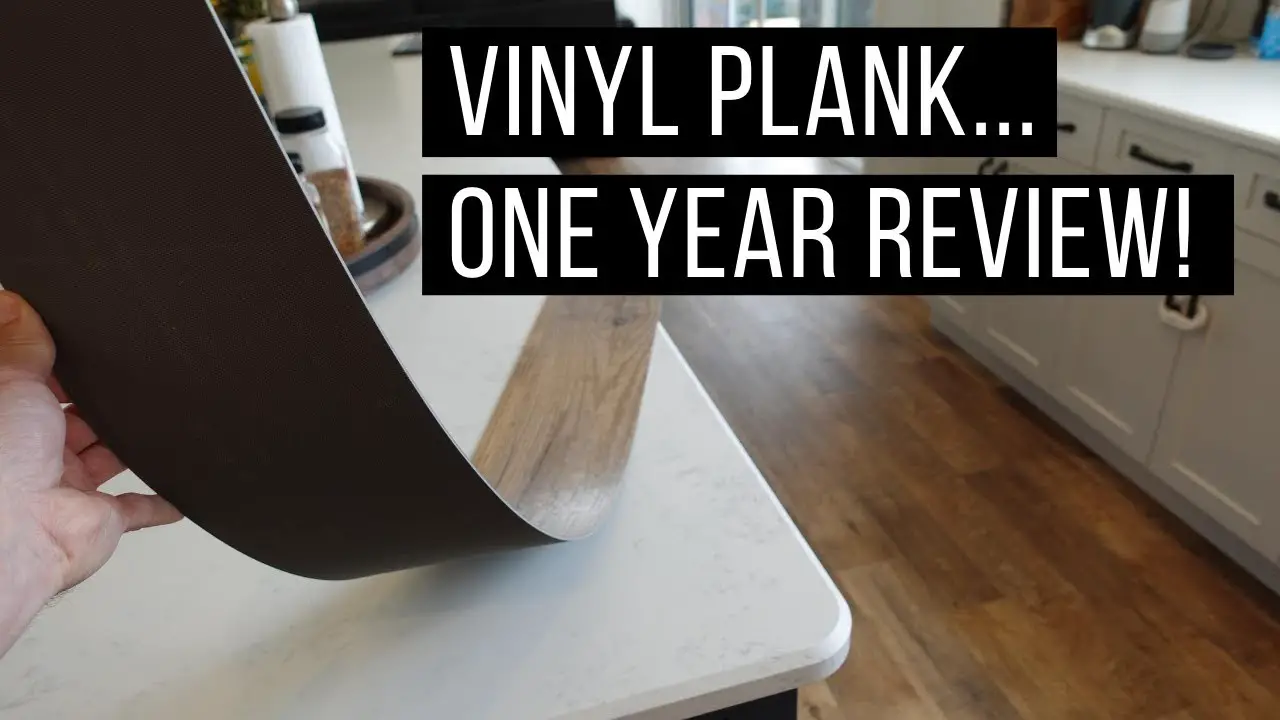
The Visual Appeal
Vinyl plank and tile flooring bring a sense of sophistication and refinement to any home, allowing homeowners to express their unique personality. Thanks to advancements in technology, these flooring solutions have evolved significantly over the years, with one major goal being to create products that exude luxury. One notable innovation is the incorporation of high-definition images of hardwood or stone, which are then used to craft realistic-looking vinyl products.
With vinyl flooring, you can now achieve a wood-like appearance in any species you prefer – cherry, maple, oak, or hickory, for instance. What’s more impressive is that these planks not only mimic the exterior aesthetic but also boast intricately designed edges, mimicking the look of genuine hardwood planks. Furthermore, homeowners have the flexibility to select from a wide range of textures, colors, and styles to suit their individual tastes.
Ease of Installation
With the continuous advancements in vinyl flooring technology, DIY enthusiasts can now enjoy seamless installations without the hassle of sawing or hammering. Luxury brands have taken it a step further by introducing self-adhesive options that simply require placement on the sub-floor for a secure hold. For an even more streamlined experience, click-lock vinyl floors eliminate the need for glues, solvents, or chemicals altogether.
In fact, with proper planning, you can complete the installation process in just a day, depending on the size of your floor. By taking matters into your own hands, you’ll not only save time but also money by avoiding professional labor costs.
Easy to Maintain
Vinyl flooring is designed with ease of maintenance in mind. The top layer provides superior stain resistance, making it effortless to clean and maintain a pristine appearance. For everyday use, simply sweep the floor to remove loose dust and dirt, or quickly mop up spills as they happen. This feature is particularly beneficial for those who suffer from allergies, as allergens are easily eliminated from the surface without becoming trapped like they can with carpet floors.
While mopping your vinyl flooring can enhance its appearance, it’s not a daily necessity – unless you’re dealing with high-traffic areas, where regular cleaning may be necessary to maintain a beautiful look.
Waterproof
Homeowners’ worst fears often revolve around mold and mildew infestations in their properties. For those residing in areas prone to humidity, vinyl flooring presents a viable solution. By installing it in high-moisture zones such as kitchens, bathrooms, and basements, you can rest assured that moisture-related issues will be a thing of the past. The water-resistant properties of vinyl floors prevent them from quickly absorbing liquid, thereby contributing to their remarkable durability.
Vinyl is Affordable
While vinyl flooring solutions boast impressive qualities like versatility, durability, and flexibility, they also offer an unexpected advantage: affordability. In fact, their cost-effectiveness has made them a popular alternative to hardwood for those who crave the same level of elegance and sophistication. When it comes to luxury vinyl options, prices vary depending on the specific type you choose.
However, if you’re willing to invest in higher-end products, you can enjoy added features like enhanced durability, a wider range of design options, and improved cushioning.
Family-Friendly
When you’re juggling a large family that includes both pets and little ones, vinyl flooring is an excellent choice. One of the key benefits is its low-maintenance nature. These floors come equipped with a non-slip surface, perfect for homes where kids are always on the move and can help prevent accidents from occurring. Additionally, vinyl’s anti-static and slip-resistant properties make it an ideal option for busy bathrooms, providing an added layer of safety and peace of mind.
Vinyl Plank & Tile Flooring Cons
Non-Recyclable
Despite the many benefits of vinyl floors, one significant drawback is their non-recyclable nature. The synthetic material used in their production is non-biodegradable and challenging to reuse, making it difficult for manufacturers to implement recycling programs. As a result, discarded vinyl flooring often ends up in landfills, contributing to environmental pollution.
However, there are environmentally friendly vinyl planks available that do not contain hazardous chemicals and can be recycled at the end of their lifespan. While recycling is indeed a complex process, individuals committed to reducing their ecological footprint may want to explore alternative flooring options.
Fading and Denting
While fading is a common issue with vinyl flooring, particularly when exposed to direct sunlight, this doesn’t mean you can’t enjoy its benefits indoors. To minimize the impact of sun rays on your vinyl planks, consider incorporating rugs and blinds into your decor. Not only will this help maintain their vibrant appearance but also prevent discoloration. Be mindful of using mats with rubber backing as they too can contribute to color inconsistencies.
Additionally, consider rearranging your furniture periodically to ensure a consistent look throughout the room.
Vinyl is Hard to Remove
The ease of installing vinyl flooring may come as no surprise, but the process of removing it is an entirely different story. While click-lock installations provide a relatively straightforward removal experience, those that rely on glue pose a significant challenge. In fact, attempting to remove glued planks can be a labor-intensive and time-consuming task.
Health Risks
While vinyl flooring may offer more flexibility in terms of design and installation, it’s often overlooked that manufacturers don’t prioritize health concerns due to lax regulations. A notable issue with vinyl is its tendency to release volatile organic compounds (VOCs), which are significant indoor air pollutants. These gases can exacerbate respiratory problems and create unhealthy environments for those suffering from allergies.
When selecting vinyl flooring options, look for products with low VOC emissions to minimize potential health risks. If you’re not particularly concerned about indoor air quality, the initial smell may be a temporary nuisance that dissipates over time.
Vinyl Types Vary in Quality
While luxury vinyl may be synonymous with high-quality materials, it’s essential to recognize that even top-rated brands can vary in terms of quality. To make an informed decision, one must look beyond the brand name and focus on tangible characteristics such as thickness. By doing so, consumers can gain a deeper understanding of the product’s overall quality. Furthermore, engaging with sellers and inquiring about different qualities can prove to be invaluable in making the right choice.
Where and How to Find High-Quality Vinyl Planks
When shopping for vinyl, it’s crucial to consider several factors to ensure you’re getting high-quality products. While it can be challenging to distinguish superior from inferior vinyl at first glance, there are key features to look out for. The core, thickness, visual layer, wear layer, and register embossing are all important indicators of quality.
Before making a purchase, define your ideal specifications, including the water-resistant and scratch-proof layers, as well as additional protective coatings. For busy households, opt for thicker wear layers (20mm or higher), while less active areas may suffice with 12mm or thinner. The topcoat material is also vital, providing protection against stains and scratches; a hard, clear coat is ideal.
Additionally, verify the safety certifications and residential warranties (at least 20 years) to ensure your investment is protected. Furthermore, consider the reputation of the manufacturer, as trusted brands often guarantee quality and reliable warranties. With these factors in mind, it’s essential to research and choose a reputable brand to get the most out of your vinyl flooring purchase.
Vinyl Plank Flooring Brands & Reviews
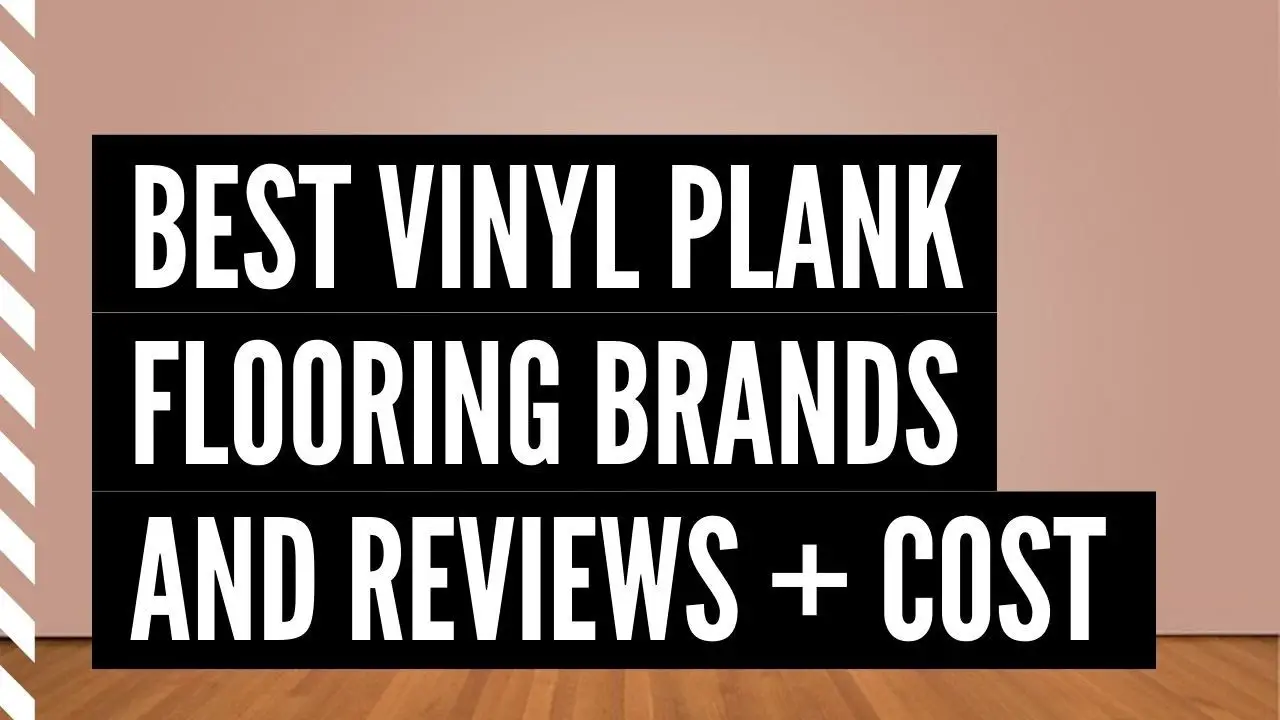
NuCore
When it comes to flooring options, NuCore from Floor & Décor stands out for its exceptional durability, making it an ideal choice for high-traffic areas in the home. Its waterproof nature is also a significant advantage, with a 10% waterproof rating that provides peace of mind. One of NuCore’s most appealing features is its ability to mimic real hardwood grain finishes, complete with an overlay cork layer that’s hypoallergenic and gentle on bare feet.
This vinyl floor option is designed to be warm underfoot, even in cold climates, and absorbs sound for a more peaceful living space. Additionally, NuCore excels when it comes to ease of maintenance – simply sweep and mop the floor to keep it looking its best. For homeowners with pets and children, this brand’s durability and stain-resistance make it an excellent choice.
And, as an added bonus, NuCore offers a lifetime warranty for residential use, with a 15-year warranty available for commercial applications.
Shaw

Shaw is a reputable vinyl brand that justifies its premium price point with exceptional value. While it may be costly, the investment pays off in the long run due to its unwavering commitment to quality, durability, and customer satisfaction. The company’s products are highly sought after for their superior craftsmanship, being sourced primarily from the USA.
Shaw leverages cutting-edge technology to create remarkably realistic textures that mimic nature, offering a wide range of styles that impress from every angle. Whether you’re looking for modern designs or timeless classics, Shaw has something to offer homeowners seeking both beauty and durability in one convenient package.
Shaw’s luxury vinyl floors are crafted across various lines, including Daratru, Floorte, and Floorte Pro.
Each line boasts a diverse array of designs and color options, allowing you to find the perfect match for your home’s unique style. The company’s focus on quality is evident in its flooring products’ thickness, which reaches up to 5 mm, and the wear layer, which can be as thick as 20 mil.
Menards
Looking to transform your home’s aesthetic? Menards is an excellent choice, offering a wide range of designs, styles, and color variations that can add significant value. For families with multiple members, Menards flooring solutions are particularly well-suited, as they’re designed to withstand heavy foot traffic while maintaining their beauty. The brand’s wood designs effortlessly complement any home décor, ensuring a cohesive look.
Menards also excels in terms of installation and maintenance ease. Their no-glue, no-mess angle-click system streamlines the process, making it quick, simple, and mess-free. While the installation process is straightforward, it’s still recommended to hire a professional to ensure a flawless installation and take full advantage of the warranty. With their waterproof nature and low-maintenance requirements, Menards flooring is suitable for any room in your home.
Cali Bamboo
Cali Bamboo may not be the first name that comes to mind when thinking of vinyl flooring, but they’re actually a pioneer in the field. While their floors don’t necessarily resemble bamboo, they do offer two flagship brands – Vinyl Pro and Vinyl Plus – which are designed for any floor type and boast impressive durability, affordability, and ease of maintenance. What sets Cali Bamboo apart is their focus on thermal insulation and sound-reduction technology.
This means that homeowners can enjoy warmth in the winter and coolness in the summer without sacrificing comfort. The floors are equally suitable for residential and commercial use, making them an excellent choice for yoga studios, gyms, daycare facilities, and more – all with minimal maintenance required.
Armstrong
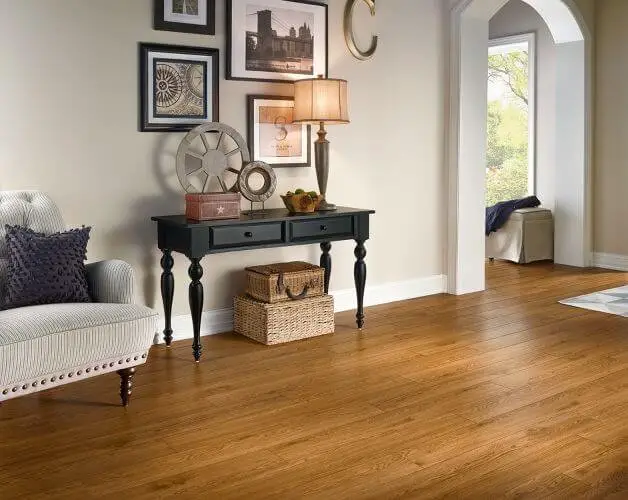
When it comes to floor coverings, Armstrong is a well-established name that commands respect. Their Luxe Plank vinyl flooring line is particularly popular, offering an impressive range of luxury vinyl planks to choose from. To make things even more appealing, the company divides its offerings into three distinct quality tiers – Good, Better, and Best – ensuring there’s something for every budget and requirement. One of Armstrong’s greatest strengths lies in its ease of installation.
The brand employs a unique self-stick adhesive called FasTak, which boasts a lower tack and pressure-sensitive design that allows for multiple repositioning attempts until the perfect angle is achieved. Additionally, Armstrong’s floors feature a click-and-lock function, streamlining the installation process. In terms of pricing, Armstrong falls squarely in the mid-range category – not too expensive, nor cheap.
While their warranties may not extend indefinitely, the brand’s reputation for durability and affordability is well-deserved. By choosing Armstrong, you can expect high-quality vinyl flooring that balances budget-friendliness with longevity.
LifeProof
Home Depot’s Lifeproof is a trusted brand that has been rebranded from Allure, yet it remains a market leader in flooring solutions. One of its standout features is the customization option for plank widths, allowing homeowners to choose from a range of styles that mimic premium woods like oak, pine, and hickory. The product’s LVP (Luxury Vinyl Plank) is specifically designed for busy homes, boasting resistance to water damage and heavy traffic.
If you’re seeking a flooring solution for high-traffic areas, Lifeproof is an excellent choice. The brand offers a diverse range of styles and colors to suit individual preferences, featuring rigid PVC cores that are 100% waterproof. For commercial establishments with a higher budget, Lifeproof’s high-end planks provide a perfect solution. Not only do they deliver stunning floors for both residential and commercial settings, but they’re also easy to maintain.
Mannington
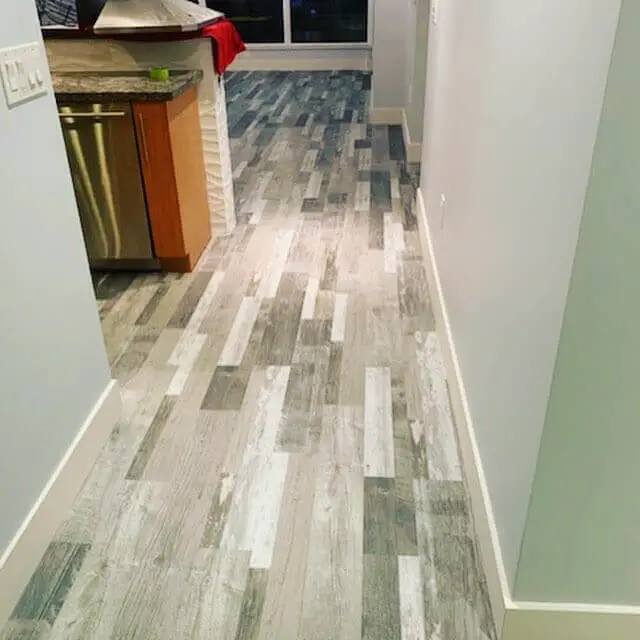
Mannington’s reputation for excellence is well-deserved, given its 100+ year history of delivering top-notch quality. The company’s commitment to innovation and design has earned it a spot among the best vinyl flooring solution providers in the market. Notably, Mannington prides itself on offering allergy-friendly, environmentally safe, and noise-reducing options that cater to diverse needs.
As reflected in their glowing online reviews, Mannington’s customer service is exceptional, providing tailored solutions for customers seeking guidance. For families with kids and pets, Mannington is an ideal choice due to its durable planks capable of withstanding stains and scratches, as well as ease of cleaning and maintenance.
While pricing falls within the industry average, Mannington’s commitment to quality ensures that even at affordable prices, customers receive high-quality vinyl flooring solutions.
Karndean

Karndean’s reputation for crafting exceptional luxury vinyl plank (LVP) flooring solutions, combined with its commitment to eco-friendliness, has earned it a sterling reputation in both commercial and residential settings. The brand’s 100% waterproof vinyl floors are particularly well-suited for high-moisture areas like kitchens and bathrooms, thanks to their diverse range of wood and stone-inspired styles.
What sets Karndean apart is its unique offering of loose planks, which can be installed with ease due to the resilient rubber backing that prevents shifting or warping during installation. While premium pricing may be a consideration, the added peace of mind that comes with Karndean’s lifetime warranty, which covers normal wear and tear without pro-rating, makes it an attractive option for those seeking a high-end flooring solution.
However, professional installation is required to activate the warranty.
Mohawk
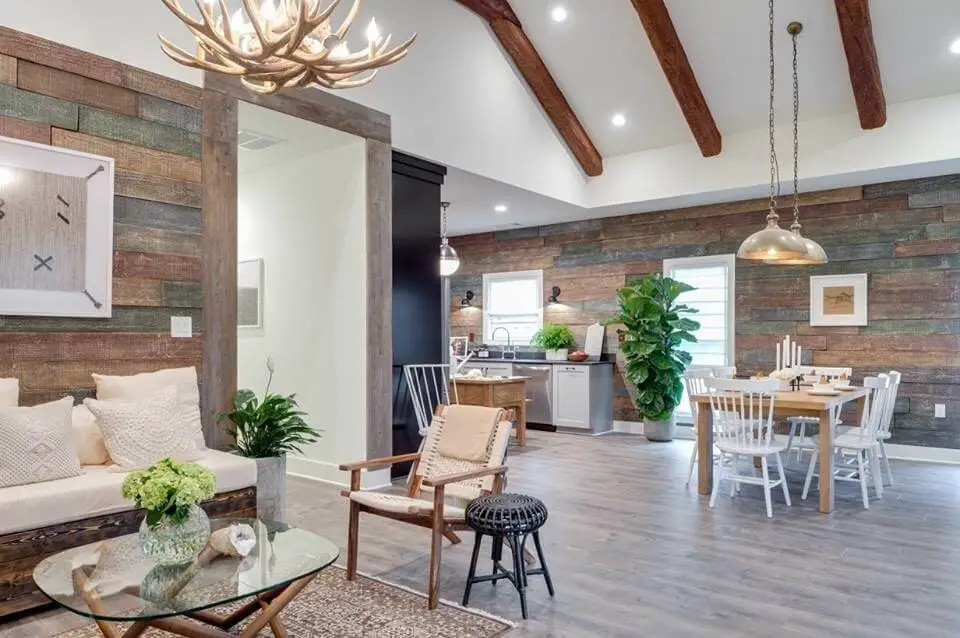
When it comes to LVP flooring, Mohawk is an outstanding choice for families with kids and pets. The planks are remarkably easy to maintain and resistant to scratches, making them a practical solution for busy households. Additionally, they’re water-resistant, making them suitable for areas prone to moisture. Mohawk’s commitment to quality and sustainability is also noteworthy.
As a company with over 40 years of experience in the industry, it’s no surprise that their products adhere to United Nations’ guidelines on sustainable practices. For parents, Mohawk’s flooring offers not only ease of maintenance but also warmth and softness underfoot. The brand has built a reputation for providing high-quality vinyl at affordable prices. What’s more, their loyal customer base is a testament to the company’s dedication to delivering exceptional results.
Their responsive customer service is another aspect that sets them apart from competitors.
COREtec
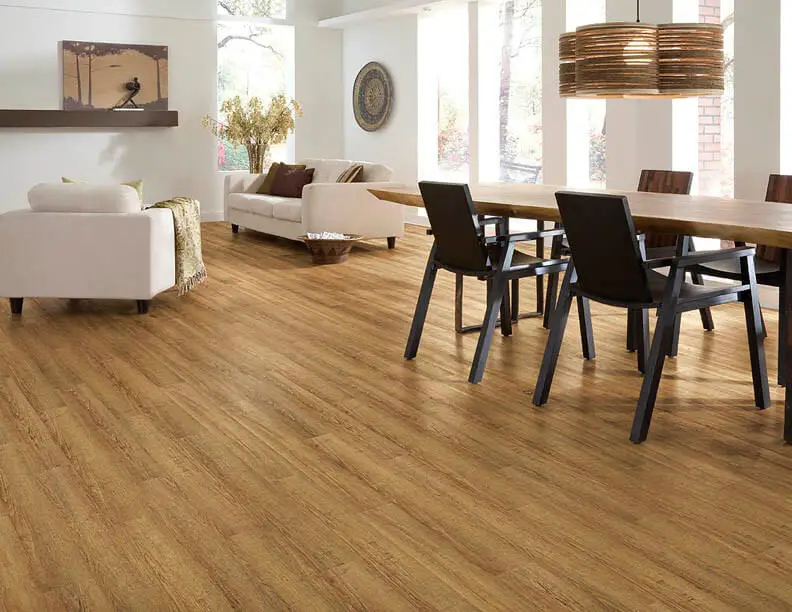
COREtec is renowned for its unparalleled vinyl flooring solutions that deceive the eye with their uncanny resemblance to genuine engineered hardwood. The company’s commitment to health, environmental sustainability, and eco-friendliness sets it apart from competitors, solidifying its position as a leading producer of sustainable floors across the US.
At first glance, COREtec’s products are so convincingly realistic that even the most discerning eye may struggle to distinguish them from actual hardwood. The key to this impressive illusion lies in the company’s meticulous attention to texture and real graining, which yields floors that perfectly mimic the authentic look of natural wood.
Moreover, COREtec boasts a patented construction method that has proved instrumental in crafting LVP products that are not only durable but also stunningly attractive. With its 20mil wear layer providing impeccable protection against high traffic, these floors are an ideal choice for busy commercial spaces.
Furthermore, their waterproof nature allows for seamless installation in wet areas like bathrooms and basements, further expanding the range of possibilities for homeowners and builders alike.
Installation Cost
When it comes to estimating the cost of vinyl installation, there are numerous variables at play. Location, type, material, finish grade, preparation, and surface area are just a few of the factors that can impact the final price tag. As you weigh your options, remember that the installation cost is not solely determined by the price of the material itself, but also by the intricacies involved in bringing it to life.
Whether you’re opting for planks or tiles, the costs will converge, as both styles necessitate a similar approach. However, for those with a DIY bent, consider the warranty implications before taking the self-installation route. Beyond these primary factors, other considerations that can influence vinyl installation pricing include features like rigid core or waterproofing capabilities.
Thickness of the flooring wear layer and planks can also drive up costs, as thicker layers require more extensive installation processes. Notably, installing new vinyl flooring tends to carry a higher price tag than upgrading an existing one. Furthermore, some brands may demand more significant investments in labor costs compared to others. To secure an accurate quote, it’s essential to consult with installers who can factor in all these variables and provide a comprehensive estimate.
Additional Costs
When it comes to installing luxury vinyl flooring, there’s more to the cost than just the initial installation price. To ensure a professional-looking finish, you may need to factor in the costs of floor molding, which can vary depending on the size of your room and the type of molding used. Another important consideration is the underlayment, which is often included with luxury vinyl flooring but may need to be purchased separately if it’s not already attached.
Your professional installation team can advise you on whether an underlayment is necessary. In addition to these costs, you may also need to invest in a vapor barrier if you’re installing vinyl in areas prone to dampness or humidity. This extra layer provides protection against mold and mildew, extending the lifespan of your flooring. And finally, don’t forget to factor in the cost of removing any existing flooring, which can vary depending on the type of floor and the method of removal.
You may also need to pay for transportation and non-hazardous dumping fees for the removed flooring. While installing your luxury vinyl flooring yourself can save you money on professional installation costs, it’s not a zero-cost option. You’ll still need to invest in installation tools, which can add up quickly. Be sure to research the different tools required for vinyl installation and compare them to the prices charged by professionals.
Vinyl Plank Flooring Installation
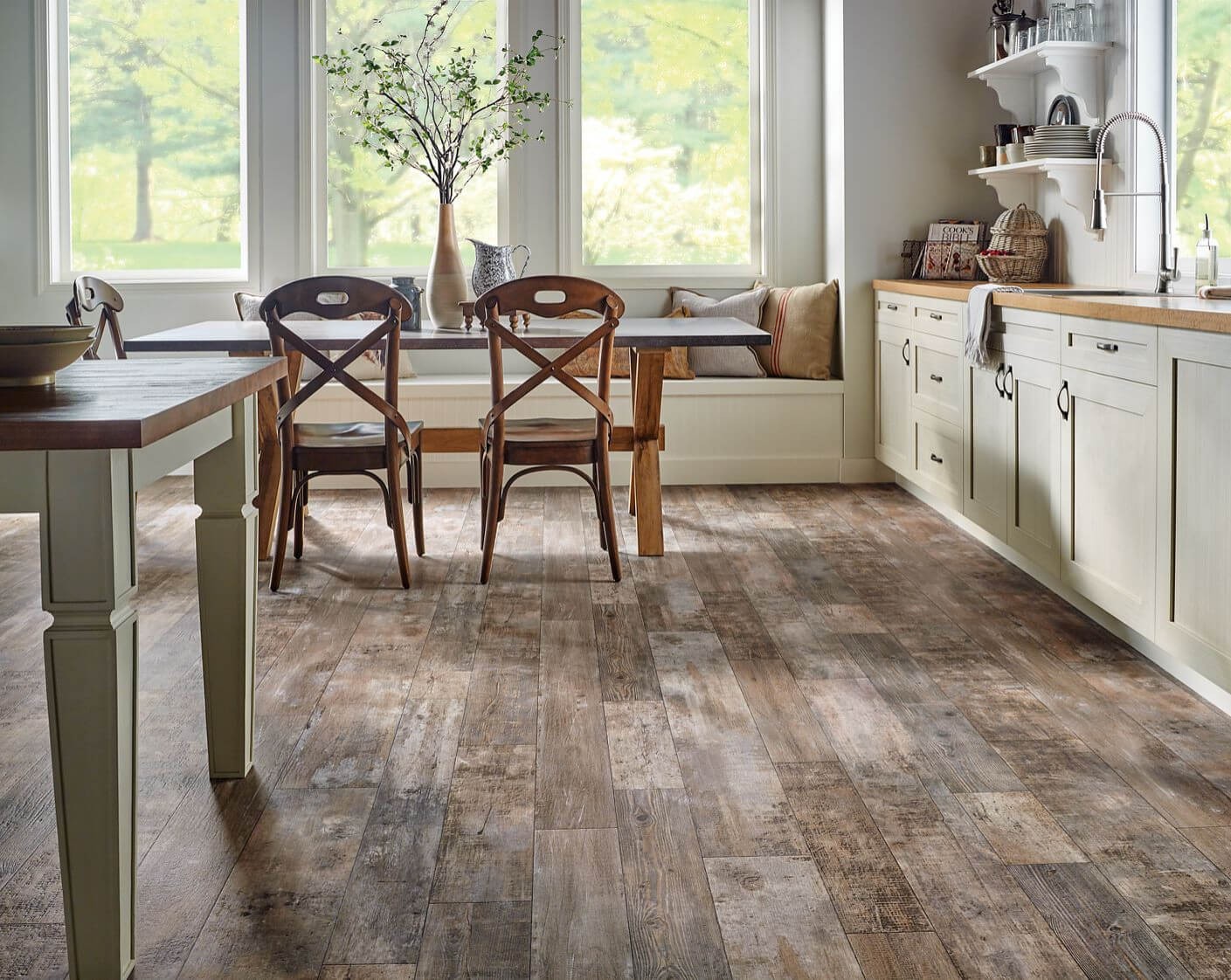
Which direction to install vinyl plank flooring?
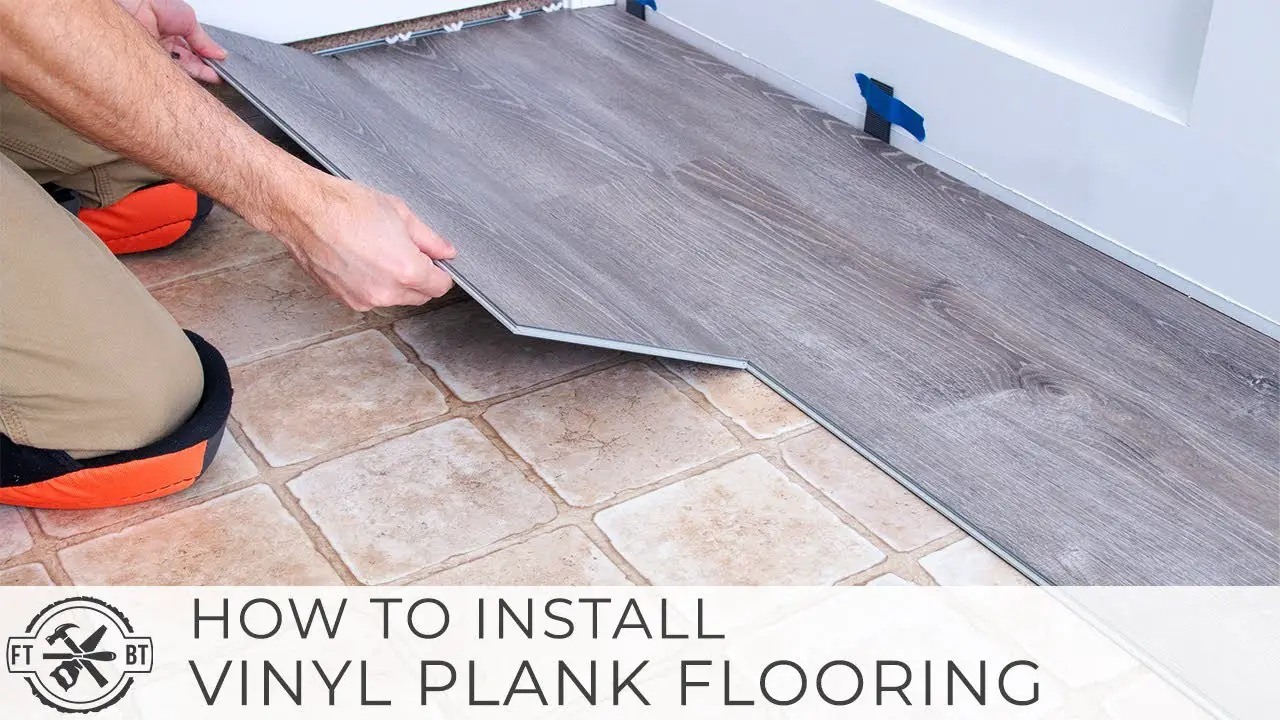
When it comes to installing vinyl planks, there’s no one-size-fits-all approach when it comes to direction. However, following some guidelines can help bring out the best in your flooring design. For instance, consider the shape of the room – running your planks parallel to the longest wall can create a sense of spaciousness and make small rooms feel larger. Alternatively, follow the natural light source in your home to create a seamless transition between indoors and outdoors.
If you’re looking for a more dramatic effect, consider installing vinyl flooring that radiates from your main entrance – this can create the illusion of a longer space and draw attention to your foyer or living area. Ultimately, the direction of your vinyl planks is also a matter of personal preference. While some may prioritize design norms, others may choose to install their flooring in a way that reflects their unique style and personality.
Whatever direction you choose, make sure it’s one that brings you joy and satisfaction.
Is It Better to Glue or Float Vinyl Plank Flooring?
When it comes to vinyl plank flooring, there are two primary installation methods: glued down and floating. While both approaches have their advantages and disadvantages, each offers unique benefits that should be considered. The choice between glued down and floating ultimately depends on several key factors.
The Cost: Glued down vinyl plank flooring installation tends to be more cost-effective compared to the floating method.
However, if you’re tackling the project yourself, the adhesive can prove challenging to work with, making professional assistance a necessity. On the other hand, floating vinyl installation is often easier and more suitable for DIY enthusiasts.
The Rooms: The type of room being installed also plays a significant role in determining which method to use.
For instance, floating vinyl makes an excellent choice for rooms like kitchens, bathrooms, and bedrooms, as they are highly resistant to water and durable. Conversely, larger rooms that require stability and consistency might benefit from the glued down approach, where the adhesive adheres to the sub-floor, minimizing the likelihood of lifting.
Durability: For high-traffic areas, glued down installation is generally recommended, as it can effectively reduce floor roll and lift caused by heavy foot traffic. Additionally, it can withstand frequent cart and furniture movement over the flooring. Both methods can resist dent and scratches, but glued down installation offers enhanced stability and durability.
Ultimately, choosing between glued down and floating vinyl plank flooring installation depends on a variety of factors, including cost, room characteristics, and desired level of durability.
Glue down Installation Tips
Before installing the flooring, it’s crucial to prepare the floor surface. Start by ensuring it’s flat and debris-free. Use a floor scraper, belt sander, or floor grinder to eliminate any high points that could impede the installation process. To guarantee a strong bond between the flooring and adhesive, consider applying a paint-on primer beforehand. Additionally, conduct moisture testing to verify that humidity levels are within the manufacturer’s recommended range.
Finally, stick to the manufacturer’s installation instructions for optimal results.
Floating Installation Tips
To initiate your vinyl flooring project, start by gathering the essential tools and protective gear, such as gloves. Next, address any irregularities on the floor by sanding down high spots to create a smooth surface. Conversely, fill in any low areas to ensure a consistent foundation for your installation. Additionally, trim the jambs and casing to facilitate easy placement of the flooring beneath.
With these preliminary steps complete, determine the direction you want the planks to run, taking into account factors like natural light and room layout. Finally, begin installing your vinyl planks using the floating style, which allows for effortless movement and a seamless finish.
Hire a Pro
While the idea of installing vinyl floors solo can bring a sense of accomplishment, it’s essential to consider whether you have the necessary expertise, experience, and time commitment required to do the job perfectly. In many cases, hiring a professional installer will yield better results than attempting to DIY. Some flooring types are so complex that they demand specialized knowledge and skills, making them unsuitable for amateur installation.
To ensure a seamless and efficient installation process, it’s highly recommended to find a certified installer who can guarantee a perfect finish. Not only will this provide peace of mind, but many warranties also stipulate professional installation as a condition for coverage. With a professionally installed floor, you’ll be able to relax and enjoy your new flooring for years to come.
Cleaning Tips

To reap the full benefits of your vinyl flooring investment, it’s essential to understand that its longevity ultimately relies on proper maintenance and care. With most solutions designed to last over two decades, the key to extending its lifespan lies in regular cleaning and upkeep. Here are some valuable tips to help you keep your vinyl flooring in top condition.
Protect it From Dirt
To effectively care for your stunning floors, it’s essential to establish a barrier against dirt and debris. While completely eliminating dirt is unrealistic, you can significantly reduce its presence by implementing simple measures. For instance, consider using high-quality doormats that efficiently capture tiny particles, rocks, and other unwanted elements before they reach your floor.
Additionally, encourage all household members to remove their shoes upon entering the home to prevent soil buildup. Furthermore, utilize furniture pads to safeguard against dents and scratches, ultimately preserving the integrity of your floors.
Clean Spills Immediately
When it comes to household cleaning, few things are more inevitable than spills – especially when you have children running around. The key is to act quickly and tackle those stains before they become a lasting fixture on your floors. Leaving spills unchecked can lead to stubborn stuck-on stains that require a significant amount of time and elbow grease to remove. Moreover, the longer you wait, the greater the risk of scratches and damage to your flooring as you struggle to scrub away the mess.
Sweep Frequently
While it may seem counterintuitive, frequent sweeping is crucial even when your floors appear spotless. Regularly removing invisible particles prevents the buildup of debris and ensures your floor remains in top condition. Moreover, this habit helps eliminate potential allergy triggers and respiratory irritants that can cause discomfort. To maximize the effectiveness of your cleaning routine, always opt for a soft-bristled broom to gently collect dust and debris.
Get the Right Cleanser for Your Floor
When tackling vinyl flooring cleanup, resist the urge to reach for harsh chemicals, even if the floor appears heavily soiled. Instead, opt for gentle cleaning methods and solutions that won’t damage the material. For particularly stubborn stains, a damp mop with hot water can be an effective solution. Additionally, consider using a soap specifically designed for your vinyl flooring type to effectively remove dirt and grime without compromising its integrity.
Rinse Well
When cleaning your floors with soap, it’s crucial to ensure a thorough rinse to prevent any residue from being left behind. This film-like substance can attract dirt and dust, making future cleaning more challenging. To achieve an effective rinse, dampen a clean mop with water and use it to mop the floor, removing as much of the soap as possible. For added efficiency, consider using two mops – one dedicated for cleaning and another specifically designed for rinsing after the initial clean.
Repairing Tips
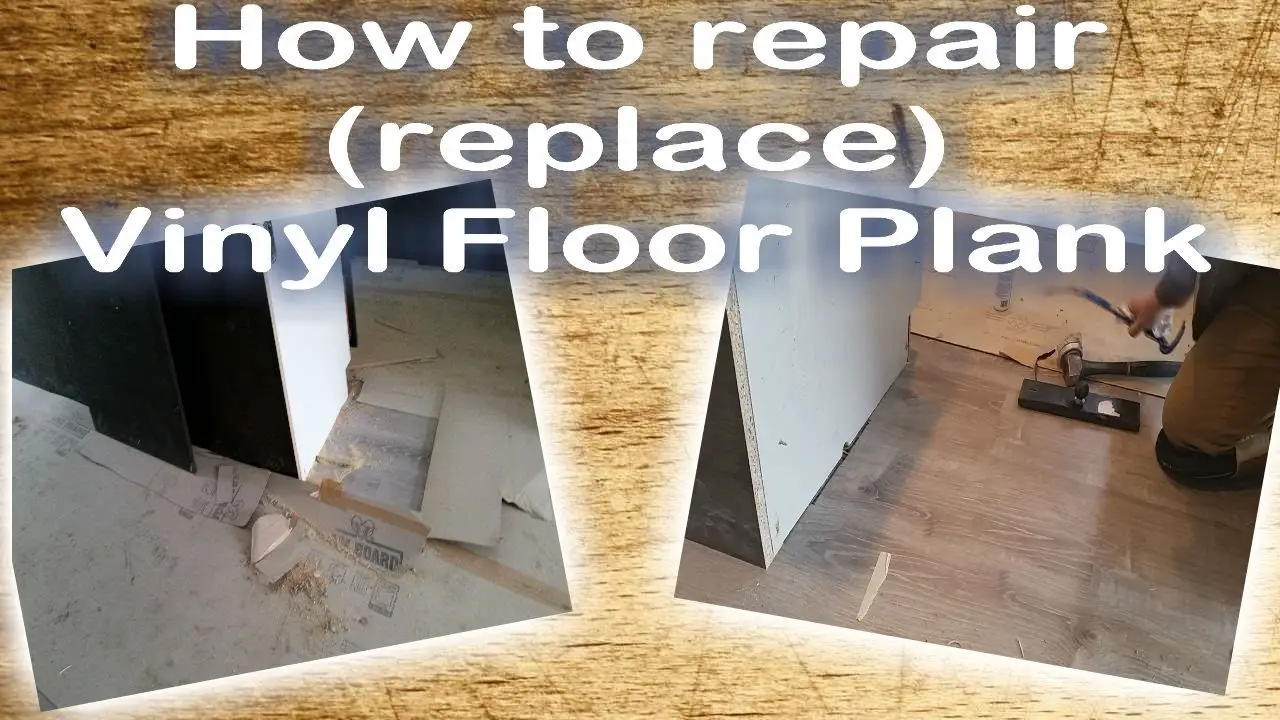
When it comes to vinyl flooring, even the best maintenance can’t entirely prevent damages from occurring. As such, it’s essential to be prepared for when dents, scratches, and other imperfections arise. The type of damage your floor sustains will dictate the approach you take during repair. Here are some practical tips to help guide your process. For tile-based vinyl flooring, a simple replacement may suffice in addressing damaged tiles.
On the other hand, small cuts and scratches on planks can be easily addressed with liquid seam sealer. To initiate the repair, start by gently cleaning the affected area with a soft cloth and a thinner solution. Next, apply the sealer and allow it to set. In cases where burns or tears have compromised your floor’s integrity, a more involved approach is necessary. Here, you’ll need to remove the damaged section entirely before replacing it with an identical piece of flooring.
This process requires a double cutting action to ensure a seamless repair.
FAQs About Vinyl Plank Flooring
What is better laminate or vinyl plank flooring?
When it comes to selecting a new floor, laminate and vinyl options are often top of mind. Both provide a winning combination of aesthetics, comfort, and affordability. What’s more, they share several key benefits, including ease of installation, eco-friendliness, and low maintenance requirements. However, the decision ultimately comes down to personal preference and the specific needs of each room.
For instance, those seeking water-resistant floors may lean towards vinyl, while others may prefer laminate for its comfortable underfoot feel.
What goes under vinyl plank flooring?
Vinyl plank flooring often relies on a layer of underlayment to ensure a successful installation. In many cases, this underlayment serves as a buffer between the subfloor and the flooring itself, compensating for any imperfections or irregularities in the underlying surface. If the subfloor is in pristine condition and appears smooth to the naked eye, there may be no need for an underlayment layer.
However, when dealing with a subfloor that’s less than ideal, an underlayment becomes crucial for preventing moisture damage and providing added cushioning and support.
What is the best vinyl plank flooring?
LVP’s enduring popularity stems from its exceptional craftsmanship and wood-inspired aesthetic. This versatile flooring solution provides a cozy underfoot experience, keeping you warm in winter and cool in summer. Comprising multiple layers – the core, waterproof, and scratch- and stain-resistant components – LVP is an ideal choice for busy households with children and pets, offering a practical and stylish solution for high-traffic areas.
How long does vinyl flooring last?
Vinyl flooring’s longevity is a major selling point for many homeowners. When properly installed and cared for, high-quality vinyl floors can endure for up to 20 years or more. To further instill confidence in their products, manufacturers often provide comprehensive warranties that cover normal wear and tear. However, it’s essential to note that proper maintenance and care are still necessary to ensure the floor reaches its full lifespan.
Do you need underlayment for vinyl plank flooring?
Luxury vinyl planks possess a unique advantage when it comes to installation – they don’t require an underlayment. One might assume that this omission is due to their inherent softness compared to other flooring options. However, this softness can actually work against them if an underlayment is added, as it can create excessive cushioning that may lead to denting and premature wear over time. Instead, a dense underlayment can be used if desired, providing a more suitable base for the flooring.
Is vinyl plank flooring better than laminate?
When it comes to selecting the perfect flooring option for homes with large families, Luxury Vinyl Plank (LVP) stands out as an excellent choice. Not only can LVP withstand the rigors of high-traffic areas, but it’s also surprisingly resilient to stains and scratches caused by children and pets. As a bonus, LVP offers an impressive array of styles, making it a popular pick among homeowners.
In fact, when comparing laminate to vinyl for residential flooring needs, vinyl often emerges as the clear winner.
Is vinyl plank flooring good for uneven floors?
When it comes to installing vinyl on uneven floors, one of its most significant advantages shines through – its stability. Unlike other materials that may struggle with slight imperfections in the subfloor, vinyl remains unfazed. As long as the floor is relatively flat, you’re good to go. No need for extensive leveling or costly corrections.
For glue-down vinyl planks in particular, a simple paint-on primer can be a game-changer, ensuring the adhesive has a strong bond and reducing the risk of delamination over time.
What happens if water gets under vinyl plank flooring?
A common issue with vinyl plank flooring is moisture accumulation beneath the surface. While the planks themselves are designed to be waterproof, excess water underneath can have devastating consequences. As the moisture seeps under the planks, it compromises the glue bonds, causing them to lift and create bubbles. If left unchecked, this can lead to more serious problems like mold and mildew growth, ultimately compromising the integrity of your flooring.
Conclusion
Are you dreaming of a beautiful hardwood flooring but concerned about the cost? You’re in luck! Vinyl is here to offer a stunning alternative that won’t break the bank. Gone are the days when vinyl looked like fake wood – today’s technology has made it impossible to distinguish real hardwood from high-quality vinyl. Manufacturers have upped their game, providing customers with an array of beautiful designs, colors, and styles to suit every taste and preference.
With a plethora of brands offering an impressive range of options, you’re spoiled for choice when it comes to finding the perfect fit for your home – regardless of budget size. What’s more, each brand boasts its own set of warranties, with some even offering lifetime guarantees. The type of warranty you receive will depend on whether you’re looking to install vinyl in a residential or commercial setting.
Vinyl is truly a fantastic flooring solution for homeowners, and it doesn’t discriminate – it blends seamlessly in homes with pets and children. Before making your purchase, take the time to research each brand’s features, characteristics, pros, and cons. This will empower you to make an informed decision that suits your needs.
Related Posts
When it comes to home improvement, etiquette plays a significant role in determining how much to tip floor installers. While gratuity is not mandatory, it’s considered polite to show appreciation for their work. In this sense, understanding the norms surrounding tipping can help you navigate the process with confidence. On the other hand, if you’re considering a career as a flooring installer, there are specific steps you need to take to get started.
From learning about different types of floors to gaining hands-on experience, this guide will walk you through the entire process. Moreover, when it comes to designing your new home, choosing the right color walls that complement grey floors can be a daunting task. By exploring different design options and expert tips, you’ll gain valuable insights to make informed decisions. Additionally, considering an open floor plan for your new home can bring numerous benefits.
Finally, the rich history of rugs has led to diverse designs and styles we see today. By understanding their evolution, you’ll appreciate the artistry that goes into creating these beautiful pieces. Ultimately, choosing the ideal flooring for your house requires careful consideration of factors such as durability, maintenance, and style.



